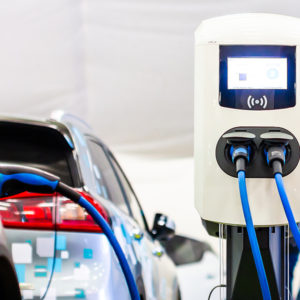PATNODE: Beyond Biden’s War on Cars: Analyzing New Jersey’s Electric Vehicles Mandate

States have been enacting extreme policies to limit the availability of gas-powered vehicles, surpassing even the Biden administration’s efforts at the national level.
New Jersey recently joined the band of states following California’s lead to ban the sale of new diesel and gas-powered vehicles. The state’s “Advanced Clean Cars II” rule (ACCII), which was adopted by the New Jersey Department of Environmental Protection (DEP), requires that any new cars and light-duty trucks sold be electric vehicles by 2035.
New Jersey Governor Phil Murphy pledged in his announcement to “utilize every tool at our disposal to combat the intensifying climate crisis.” The problem, aside from his dubious “crisis” claim, is the practical problems of such a rushed, nine-year phase-in.
For one thing, electric vehicles are far from ready for prime time. As we have seen this winter, electric vehicles have a charging problem when temperatures drop, which could cause major problems for one-car households if that car is electric. According to a Manhattan Institute report on electric vehicles, their mileage is about 30 percent worse when the weather is 20°F versus 80°F, because battery electrochemical reactions are slow at lower temperatures. There’s only a 5 percent drop in fuel efficiency for internal combustion cars over the same temperature range.
Another problem is the uncertain ability of electric grids to support an increased number of electric vehicles. Requiring the automotive industry to start selling more electric cars and encouraging people to buy the cars with government subsidies before the electric grid can reliably handle the increased demand is an obvious recipe for disaster.
A 2023 report co-authored by the North American Electric Reliability Corporation (NERC) warns of the potential for grid disruptions if electric vehicle charging equipment does not play well with the bulk power system. Tellingly, during a 2022 heat wave, the California government asked electric vehicle owners to not charge their cars to reduce stress on the grid.
Business interests in the state already see the government mandate as a major problem. Ray Cantor of the New Jersey Business & Industry Association objected in a statement that the ban on the sale of new gas-powered cars does not take into account costs or feasibility, lack of local and highway infrastructure, grid capacity, or consumer choice.
In fact, a study commissioned by the New Jersey Coalition of Automotive Retailers found that electric vehicle sales were just 1.1 percent of all sales in 2021 and just 3.9 percent in 2022 of new vehicle sales for franchised dealerships. As of June 2023, electric vehicles accounted for a measly 1.88 percent of light-duty vehicles on the road in New Jersey.
It’s no wonder that over 100 business and labor groups asked the legislature to intervene to stop the ban. According to the New Jersey Business & Industry Association’s annual Business Outlook Survey, 91 percent of businesses that have company cars said their existing fleet is all gas-powered (compared to only 2 percent that were all-electric vehicles).
Making matters worse, New Jersey has also signed onto the Accelerating to Zero Coalition’s Declaration, which is a global agreement launched at the 26th United Nations Climate Change Conference of the Parties. Just like the Biden administration’s rule seeking to limit the availability of gas-powered cars and California’s gas-powered car ban, the New Jersey DEP seeks to restrict consumer freedom by centrally planning the car market.
According to the New Jersey Business & Industry Association, the state legislature has a potential path to unilaterally repeal this regulation – without needing the governor to sign off – if they are able to pass a concurrent resolution finding the rule inconsistent with legislative intent.
Legislatures should intervene when agencies like the California Air and Resources Board or New Jersey DEP attempt to take the extreme action of banning the cars that Americans rely upon and want to drive. Legislatures are the lawmaking bodies of their states and should not sit idly by as government bureaucrats take unprecedented and restrictive actions that go well beyond what legislatures ever intended.
Americans must do their part to pay attention to what’s happening in their states and on the federal level to help ensure that they are free to drive the cars that they want, or else they may find themselves without a reliable, affordable ride.





